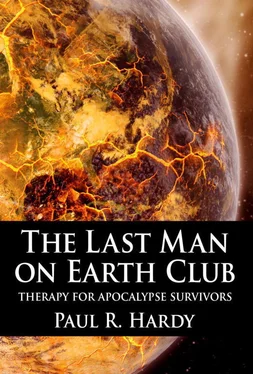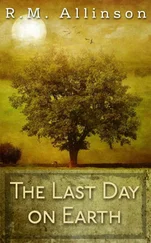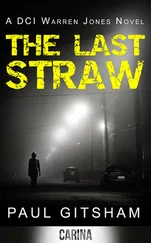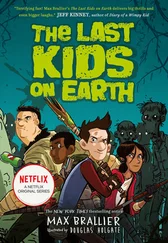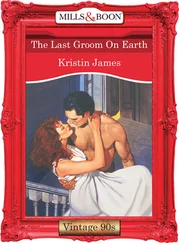“It’s a waste of time if you can’t use it.”
“Olivia, you can do anything. You don’t need to have a plan straight away. You can enjoy yourself. You can retire, if you want to.”
She scowled. “I can’t do that.”
“Okay. There’s still plenty you could do. Charity work. You could raise public awareness of extinction. I’m sure people will listen to you, after what you’ve been through.”
“Huh.”
“Or you could work with the ICT. Help them investigate genocides. Or get policy changed so what happened on your world can never happen again.” She just snorted. “Or you could help them.” I nodded toward the approaching ambulances. “There’s always going to be someone who needs therapy. Or medical help. Or just someone to talk to who’s been through something as bad as they have.”
She looked down and sighed.
“Olivia, if it’s a reason to live that you’re looking for, you’ll find one. I know you feel a bit lost at the moment, but that’s no reason to give up before you’ve started.”
“I had a reason to live.”
“You’ll find another one.”
“You reckon.”
“There’s a whole world of things you could be doing. I don’t mean you should forget everything you’ve been through. But you’re a very special woman. I know you’ll find something important.”
She sighed, and looked up at the ambulances circling, waiting for permission to land, while the medical staff came out to receive them.
She made her decision.
“Best get on with it then,” she said. We turned from the window, and left the empty office to join the others on our way to Hub Metro, where her therapy could begin.
I'm exceedingly grateful to Huw Bowen and Jason Fairley for helping me figure out which bits really needed work, and also to Amelia Tyler for helping with the earliest stages of the project, when I considered making it as a webseries.
Also thanks to Kovid Goyal for Calibre, his excellent e-reading and conversion software, and to Guido Henkel for his invaluable blog series on e-book formatting.
And finally, thanks to all the nice people on the Kindleboardsforums for their advice, opinions, and enormous reservoir of goodwill.
I found the following books especially useful:
Coping with Catastrophe: A Handbook of Post-disaster Psychological Aftercare by Peter E. Hodgkinson & Michael Stewart
Post-Traumatic Stress Disorder: Reduce and Overcome the Symptoms of PTSD by Belleruth Naparstek
Death from the Skies! by Philip Plait, PhD
The World Without Us by Alan Weisman
…along with far more websites than I could possibly name. Although I’ll make an exception for Exit Mundi, a venerable but still highly interesting summary of various potential apocalypses.
Paul R. Hardy started life as a filmmaker. He made eighteen short films, won a BBC Drama Award, co-wrote & co-produced an independent SF film called Triple Hit and also wrote Filming on a Microbudget , a guidebook for making short films. Having been introduced to the concept of spare time following a well-known global financial meltdown, he now writes science fiction novels as well. The Last Man on Earth Club was published in 2011, to be followed by All That I See or Seem in 2012.
Paul can usually be found in his native England (what with the cost of travel these days). Every now and again, he writes interesting things in his blog:
The Last Man on Blog
Coming in 2012: All That I See or Seem
Brunsol Mindspear, Secretary of the Office for the Suppression of Heresy, only wishes to know one thing: the mind of God. Because in his world, prayers do not go unanswered. Not only that, but they must be made correctly by all the millions of people across the land, or the world will suffer. Heresy must be wiped out with terror and torture, lest it provoke plague and famine.
But his world is stranger than it seems. When Brunsol dies and meets his maker, he finds world upon world above his own, each one created within the next. In trying to discover who built his reality, he will come at last to know the mind of God, and whose mind that really is…
Second Kindle Edition
Copyright © 2011 Paul R. Hardy
Cover image © Sdecoret| Dreamstime.com
This is a work of fiction. Names, characters, places and incidents either are products of the author’s imagination or are used fictitiously. Any resemblance to actual events or locales or persons, living or dead, is entirely coincidental.
